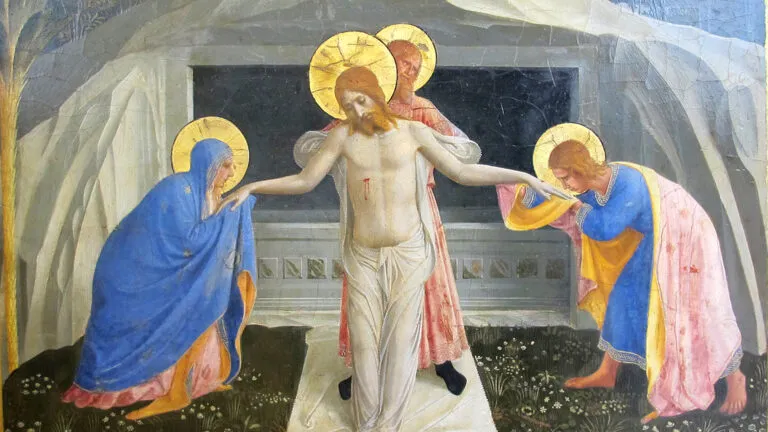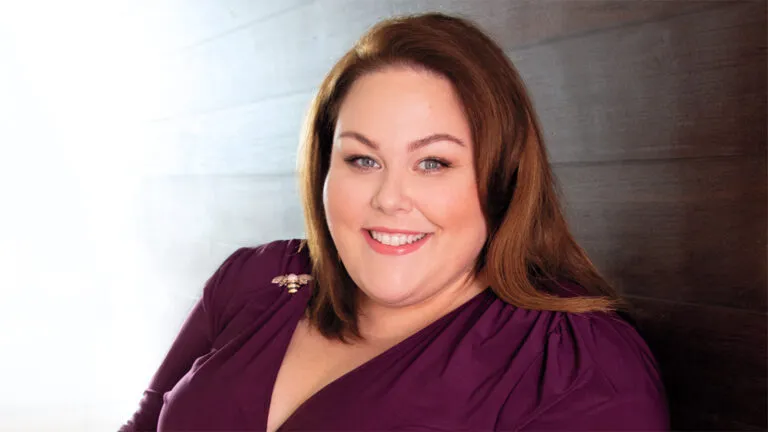The first thing I thought when I read the script for the Hallmark Channel series Debbie Macomber’s Cedar Cove was, I know this place.
I was being offered the lead role, the part of Judge Olivia Lockhart, and there was a lot about her that resonated with me: her strength, her desire to do the right thing, her compassion, her dedication to her job.
But more than all that, I knew the small town she lived in. And I know, deep in my heart and soul, the wonders and blessings of such places. If you grew up in a small town, like I did, you might travel far away, even move to a big city for work, like I did, but you’re never really far from your roots.
My hometown of Gaffney, in upcountry South Carolina, with its blossoming peach trees and Southern drawls, is thousands of miles from the mist-shrouded coast of the Pacific Northwest, where the fictional Cedar Cove sits, but they have that same small-town spirit.
Take a walk down Main Street and you’ll find a diner with good down-home cooking and a waitress who knows what you’re having without even asking, a barbershop where every play in the Friday night football game is dissected and debated, a town square with a bronze statue of a local hero.
What I learned in Gaffney is that people always make time for each other. You don’t just wave and walk on by. You stop and chat…and chat…and chat some more.
If someone gets sick, neighbors rally round them. If a historic oak tree, rumored to have been there since before the Revolutionary War, is threatened by highway development, everybody signs petitions and writes letters to the town paper until that road gets rerouted.
In a small town everyone knows you. Folks in Gaffney would stop me on the street. “Rosie, how are you?” “Rosie, tell me about your mother,” “Rosie, are you and your sisters going up to Asheville again for the summer?” they would say, calling me by my given name (I was christened Rosalie Anderson MacDowell).
There were times, especially when I was a teenager, that I wondered why everyone had to know each other’s business. Now I’m so grateful for small-town friendliness. I’d go so far as to say it’s lifesaving.
Isolation is one of the great sorrows of our modern world and loneliness is the cause of more suffering than anyone knows. Slowing down (better yet, sitting down for a spell) and sharing your news, good or bad, definitely keeps you connected.
It’s important for us, as spiritual beings, to feel as if we belong somewhere, that we’re part of a community, where we care for each other and stand up for each other.
And where we celebrate together too. In Gaffney we had Easter egg hunts in the park. Veteran’s Appreciation Day. On the Fourth of July kids decorated their bikes with red, white and blue streamers and rode in the town parade.
We had hayrides come autumn, and at Christmas everyone had a role in the pageant (there were lots of little angels with paper wings and tinfoil halos).
Then again, every Sunday felt like a holiday, a special time set off from the rest of the week. Mom played the organ at church, and I loved being there with her before the congregation arrived, listening to her practice. Those were some of the sweetest moments of my childhood.
She died when I was 23, but I can still hear the hymns she played, the music echoing off the church walls. Songs like “In the Garden,” “For the Beauty of the Earth” and “O For a Closer Walk With God,” that will stay in my heart forever.
After church, my grandmother—we called her Mimi—would have the whole extended family over for Sunday dinner (she was a wonderful cook).
Summer days seemed to go on forever, in the best possible way. My sisters and I played kick the can until it got dark, when we would catch lightning bugs. We picked the plums off the plum tree so Mom could make jam.
When we went to stay at Mimi’s summerhouse in the mountains of Asheville, North Carolina, we swam in a freshwater pool across the road, where the water was so cold we screamed when we jumped in, but then could never be coaxed out.
Mimi put our towels on the boxwood hedge as a sign that it was time to come inside.
We put on plays in the garage that we wrote ourselves and we went around the neighborhood selling tickets for a penny apiece.
We hardly wore shoes all summer except to go to church or the library. I’d wander barefoot down the wide sidewalks, into neighbors’ backyards and their houses if I needed a glass of water or sweet tea.
I can’t think of anyone who ever locked their doors, and when I read the script for Cedar Cove I had to laugh at the moment when Olivia teases the newcomer in town, a newspaper editor, for locking his car.
Are there still places where people trust each other enough to leave their doors open? Are there still small towns where neighbors drop by just to share their homemade peach cobbler? By my thirties I had pretty much decided places like that belonged to a bygone era.
I’d moved from the South to make my career in the entertainment business. In New York and Los Angeles life was hurried and harried. People came and went, work their top priority.
My career was important to me (and still is) but I felt like something was missing, something centering. What did I want for my children? What could I give them?
A small town.
I found one in Montana, a speck of a place in a valley surrounded by snow-covered mountains. I kept the family tradition of making Sundays a special time to come together, slow down and focus on our spiritual lives.
We’d drive into Missoula for church, and then have breakfast at Paul’s Pancake Parlor. At Christmas it was just like back home in Gaffney, houses decorated with lights, kids meeting up on the hill with their sleds.
There’s a little church down a long dirt road that’s only open for the holidays and everyone in the community would pitch in with the Christmas service. My kids sang and I read the Christmas story from Scripture.
Then I found another place like that, right where I had come from.
Well, Asheville isn’t exactly a small town, but many of the blessings I remembered from my childhood still remain. The library, the wide sidewalks, running into people who wanted to stop and chat…and chat…and chat some more.
I had to slow way down. “Rosie, did you hear what happened to…?” Here I was Rosie again.
My kids were the ones decorating their bikes for the Fourth of July parade, hanging out at church with the youth group and taking part in the annual donkey walk on Palm Sunday down to the monument in the park.
And we’d go to those quirky celebrations that are such a part of life in the South, like the White Squirrel Festival in Brevard and Coon Dog Days in Saluda. It’s no wonder the seagull-calling contest in Cedar Cove felt so real to me.
Not everything’s the same in Asheville. The rambling house where Mimi summered is now a bed-and-breakfast and the freshwater pool where my sisters and I swam is long gone, but I can look up at the windows of the room where Mimi slept and remember saying prayers with her every night.
We knelt by her bed, closed our eyes and listened as she prayed for Mom, Dad, our pets, the weather and always for us, knowing that we were blessed by her as much as we were blessed by God.
Of course, you can pray anywhere. But in small towns you always know someone else is praying for you. Someone who stops to ask, “How are you?” and stays to listen to your answer. Someone who knows when you need some of her homemade peach cobbler.
People really feel a sense of belonging and they look out for each other. That’s the biggest blessing of a small town—the people.
Download your FREE ebook, A Prayer for Every Need, by Dr. Norman Vincent Peale






